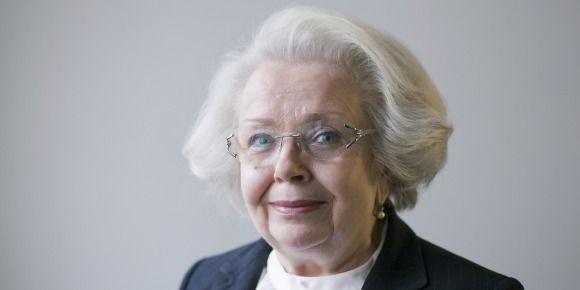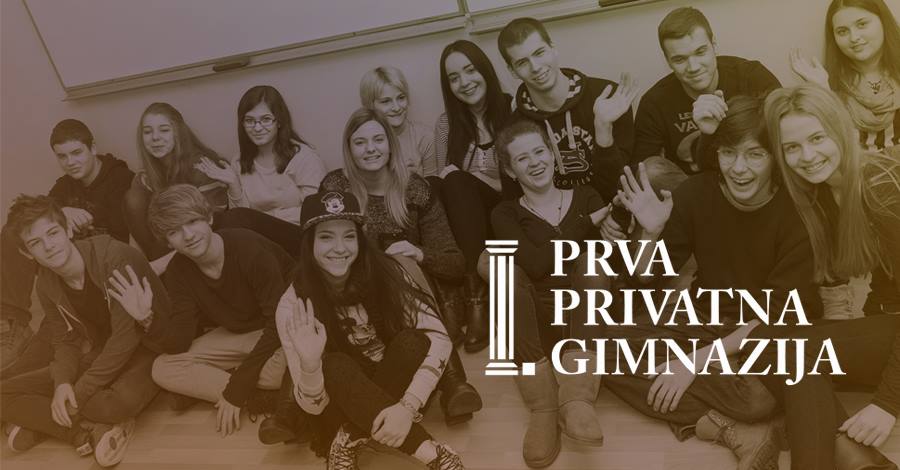1. Can you tell our readers something about yourself?
I was born in a typical Zagreb family, we were all equally poor after the Second World War, the main differences showed in people’s upbringing, the same as today. Before starting school, at six years old, I started taking piano lessons and German lessons, and helping with household chores. My mother still held on to her Austro-Hungarian upbringing and her motto was "you need to know everything, if you do not work, at least you'll know how to supervise.”
Parallel to high school I attended Music School, where I was fortunate enough to be taught by two music legends from Zagreb: professors Mladen Raukar and Stanislav Operman (the latter was taught in Vienna by one of Schubert's students) and they have, in their own way, infinitely enriched my musical education.
I graduated Romance Languages (French and Italian Language and Literature) at the Faculty of Humanities and Social Sciences in Zagreb, and almost immediately after graduation began to work at a high school and a few years later I became a senior lecturer at the Academy of Music.
I have two children - my son Tomislav is a neurologist and my daughter Maja is an English and Italian professor. They have given me four beautiful grandchildren and my greatest joy at the moment, a seven-month great granddaughter, Mia.

2. You opened the first private high school in Zagreb in 1993, in a very turbulent period of Croatian history, how did you decide to make such a bold decision?
When Croatia became independent in the ‘90s, the dominant feelings were patriotism, enthusiasm and togetherness. I was convinced then, as I am now, that the best way to express patriotism is if everyone did the job that they're good at to the best of their abilities.
I had been a high school teacher for many years and, like today, everyone was very unhappy with the school system at the time. The idea of private education came to me logically; democratization made it necessary for a completely new breakthrough in this area to happen, and so I made it happen.

3. What period of Zagreb's history do you have fondest memories of? Where did you go out in the late fifties and early sixties?
One of my fondest memories is visiting my aunt, an old lady from the Upper City in Matoševa Street.She was a treasure trove of old Zagreb stories and knowledge of the Upper City families who were more or less all related.Her mother's cousin was Countess Klotilda Buratti, so she and her brothers went to her house for tea once a week.This was, of course, before the countess' improper liaison with her lawyer that sparked a scandal in Zagreb, resulting in her family cutting ties with her, which is why she left the palace of Dverce to the city of Zagreb.My aunt remembered the young Matoš who lived across the street and she claimed that all Upper City mothers dreaded the thought that Matoš, a messy drunk and a lazy good-for-nothing, might woo their daughters.
I love memories of Zagreb as it was in the fifties and the sixties, even more so because they remind me of my youth. We used to love walking around the Upper City, sledding on Cmrok, going to Maksimir, hanging around the Flower Square. The two cinemas, Zagreb and Balkan, located at the Flower Square were the it places to go out. A cult place was the Music Institute, not only as a place where the world's most famous musicians performed, but also as a place where proms and senior dances were held, and there were very strict rules on how to dress and behave.
4. In addition to singing, you've had experience in teaching at the Academy of Music. What role, in your opinion, does music play in the life of the citizens of Zagreb and do you think the attitude of people towards music has changed over the years?
Music had a huge part in people’s life when I was younger, but I think it still does today, in a slightly different manner.
Concert Hall "ISTRA" in Tesla Street was the place where they the world's most famous musicians performed (conductors, pianists, violinists).
After Lisinski Concert Hall was opened, one of the first musicians to perform was then very young Indian composer Zubin Mehta. He was not well known to the public at the time, but he received a standing ovation after his performance at the crowded concert hall.
One of the fun anecdotes I remember is when Mario del Monaco, the most famous world tenor at the time, played at the Croatian National Theatre. He was so popular that we queued all the way to Gundulićeva Street and waited for the box office to open the night before. We could only afford the gallery tickets, where there were no seats, but the students who were there (because they had no money and couldn't afford more expensive tickets) were the biggest music lovers and connoisseurs, so all the performers valued their opinions.
On the first evening during the performance of Carmen, Maria del Monaco's partner was the brilliant Marijana Radev (named the best Carmen in the world at one point).Del Monaco was either unwell or he didn't take his performance seriously, and so this wasn't really his peak performance. After the main aria in the first act everyone at the gallery began to chant MARIJANA, MARIJANA. He obviously thought it was directed at him and so he began to bow. Then the gallery started to boo and chant CARMEN, CARMEN to the amazing Marijana Radev.
The result was that the next day his performance of Pagliacci and Cavalleria rusticana was brilliant.
5. Many people claim that Zagreb has lost the spirit that it once had; do you think that this is the case?
I think the spirit of Zagreb certainly still exists among the people of Zagreb whose main goal in life isn't having a Mercedes and a pink and green facade on their houses and I'm convinced that the situation is getting better each day.


